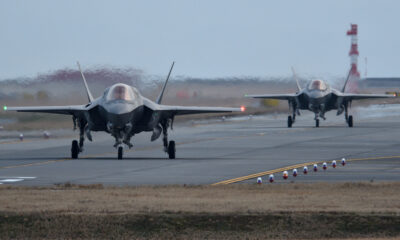Canada REJECTS US – HUGE $20B Upgrade!

South Korea proposes a massive $20 billion military upgrade package to Canada, offering submarines, artillery, and armored vehicles as the North American nation reconsiders its defense procurement strategies and relationship with traditional suppliers.
At a Glance
- South Korean companies proposed a $20-25 billion military upgrade package to Canada, including four advanced KSS-III submarines by 2035
- The unsolicited proposal includes maintenance facilities in Canada that would create local jobs
- Canada is seeking alternatives to aging Victoria-class submarines and considering upgrading to 12 newer non-nuclear submarines with Arctic capabilities
- The proposal comes amid strained Canada-U.S. relations and a review of Canada’s military procurement strategies, including potential withdrawal from the F-35 program
- South Korea’s defense industry has gained international prominence through major contracts with countries like Poland
Korea’s Comprehensive Military Upgrade Offer
South Korean defense companies have presented Canada with an ambitious $20 billion proposal to overhaul its military capabilities. The comprehensive package includes delivering four advanced KSS-III submarines by 2035, equipped with air-independent propulsion systems crucial for extended submerged operations in Arctic waters.
The proposal also includes upgrades to Canada’s artillery systems and armored vehicles from Hanwha Aerospace, positioning South Korea as a potential key defense partner for the North American nation. The total value could reach $25 billion when including maintenance facilities that would be established in Canada.
The proposal was coordinated between South Korean corporations and their government rather than coming from a direct request by Canada. This proactive approach highlights South Korea’s growing confidence in its defense industry and ambitions to expand its global footprint beyond its recent successes with European nations.
Canadian officials have expressed interest in replacing their aging Victoria-class submarines with 12 newer non-nuclear vessels specifically designed for Arctic operations, making the Korean offer particularly timely.
Strategic Partnership Beyond Equipment Sales
South Korean officials emphasize that this proposal represents more than just a commercial transaction. Deputy Defense Minister Hyunki Cho made it clear that Korea views this as an opportunity to forge a lasting strategic partnership. The timing aligns with the first Foreign and Defence Ministerial Meeting between the two nations held in November 2024, suggesting a broader diplomatic strategy to strengthen ties in the Indo-Pacific region. The proposal comes as Canada reassesses its defense policies and procurement strategies, particularly in light of strained relations with its traditional ally, the United States.
“We do not think of this as a single, one-time deal between two countries. It’s not a transaction for us. If we do succeed in making the sale, then we are going to try and give our effort toward strengthening the capabilities of Canada’s defense industry, as well as furthering defense co-operation.”, said South Korean Deputy Defense Minister Hyunki Cho.
Korean Aerospace Industries has also suggested its F-50 fighter as an alternative option for Canada, as Prime Minister Mark Carney has indicated the country might withdraw from the F-35 program in favor of different suppliers. This comprehensive approach to defense cooperation demonstrates South Korea’s intent to position itself as a reliable alternative to traditional Western defense contractors, offering not just equipment but a full strategic partnership and support for domestic defense industrial development.
Rising Confidence in Korean Military Technology
South Korea’s defense industry has rapidly gained international credibility, largely due to its successful contracts with Poland and other European nations. Defense acquisition minister Seok Jong-gun noted that Korea’s reputation as a reliable supplier of quality military equipment has grown substantially in recent years. The country’s ability to deliver advanced military systems on schedule has attracted attention from NATO members seeking alternatives to traditional suppliers facing production backlogs and extended delivery timelines.
“Prior to the large contract signed with Poland, Korea’s reputation as a defense exporter was not that large. However, with the signing of a massive contract with Poland and throughout the process of implementing these contracts, many countries have found that Korea is able to supply quality products in a timely manner.”, added South Korean defense acquisition minister Seok Jong-gun/
Canadian Global Affairs Institute President Dave Perry highlighted the practical advantages of considering South Korea as a supplier, noting their demonstrated ability to deliver large quantities of equipment quickly.
This capability is particularly valuable to the Canadian Armed Forces, which faces significant operational readiness challenges requiring immediate solutions. South Korean analysts believe their companies have excellent prospects due to Europe’s constrained supply chains and Korea’s available production capacity, giving them a competitive edge as Canada seeks to modernize its military capabilities without lengthy delays.
























